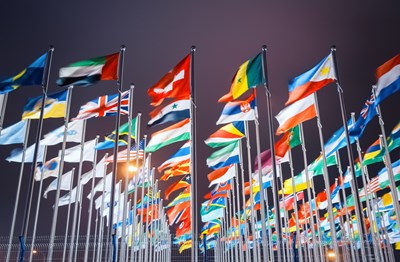The Role of Translators in Nation Building
Sunday 12 July 2015

As professional translators you may hear us say, from time to time, that we are sometimes taken for granted. This is not because we are feeling particularly sorry for ourselves, moreover that the work we do takes place in the background and, as such, is often overlooked, despite the fact that its impact can be highly significant.
Consider whether without translation and translators, globalisation and cultural change, as we know it today would have been possible. The earliest records of trade date back to 30-35,000 BC when tradesman of different nationalities had to communicate with one another in order to do business, The history of translation is so significant that some believe it dates back in origin to biblical times. Without some form of translation, those early transactions could not have happened and the subsequent economic success of those nations would not have been possible. The same is true today where, with increased international trade and dissemination of information via the Internet, translators have never been in higher demand.
Sharing cultural information and passing down knowledge is a key role for a translator – it is a translator’s role to ensure that language is not simply translated word for word but that the deeper, originally intended meaning is conveyed as well. These crucial elements, vital to the understanding of any nation, are quite often solely in the hands of a translator and are vital in continuing national heritage.
With the wealth of knowledge and information available and so easily accessible online, translation has the power to initiate social and cultural change within nations by bringing new learning and understanding, particularly within religion and politics. Typically, where countries have a multilingual population e.g. India, Africa and Canada, the role of translators can play a vital part in bringing cohesion across those populations. This is especially true when you consider the legal and administrative processes that apply. For example on Europeans Citizens' Initiative Day (13 April 2015), the European Economic and Social Committee (EESC) launched an important new service for European Citizens' Initiative (ECI) organisers translating the 800 character ECI submission text in every EU language for all validated ECIs, effectively eradicating one of the major hurdles for dedicated citizens facilitating their political engagement and enabling them to play an active role in participatory democracy. In addition, the supranational union of the 28 nations forming the EU could not reach socio-political decisions without the assistance of translators.
A large part of a nation’s cultural identity is also embedded in its culture, particularly in its literature. When translators translate notable literary works they are also playing a part in extending the sense of nation to a wider audience than was previously able to access it. According to UNESCO[i] the top three most translated authors are Agatha Christie, Jules Verne and William Shakespeare.
We can see, therefore, just from these few examples, what a pivotal role translators play not just in every day translation of documents but in the vital role of nation building and extending cultural identity.
Expert translators RL Translations can translate in any language and in any subject. With almost a decade in the industry and a strong team of 1500 translators, contact us for a free quote with your translation enquiry.
Join our community on LinkedIn, Twitter and Facebook too.
[i] http://www.unesco.org/xtrans/bsstatexp.aspx?crit1L=5&nTyp=min&topN=50
